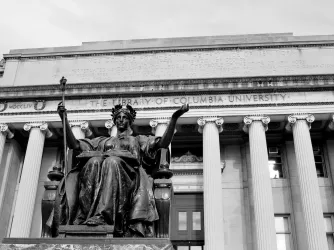Table of Contents
The First Amendment Is Not Optional
I am often surprised when we write to a public university to tell them that they are in direct violation of the Constitution, and their response is something along the lines of “thanks, we’ll take that under consideration.” People, the First Amendment is not optional! Public universities are legally bound to uphold the constitutional rights of their students and faculty.
As we discussed in a press release yesterday, we recently wrote to the University of Nevada at Reno (UNR) to inform them that their Public Forum policy—which restricts speech to only four areas of campus and requires a complex system of prior approval even for speech within those areas—is blatantly unconstitutional. In response, UNR Interim President Joe Crowley wrote that UNR was “reviewing and clarifying [its] understanding of time, place, and manner requirements,” and that he would circulate our letter to those involved in the review so they could benefit from our “thoughts and recommendations.”
Here’s the problem: we did not give UNR “thoughts and recommendations.” We told UNR that its Public Forum policy clearly violates students’ right to freedom of speech and is unconstitutional. Public universities often do not seem to realize that when they maintain policies that violate the First Amendment, they are breaking the law. Surely, if a university’s accountant said there were inconsistencies in the books that needed to be remedied, that university would fall all over itself to make sure it complied with the law. And yet, when confronted with evidence that they are breaking the law by depriving their students and faculty of constitutional rights, universities hem and haw and thank us for our “thoughts and recommendations.”
UNR is far from the only university to behave in this manner. For example, in June, 2005, FIRE wrote to Washington State University (WSU) after the administration morally and financially supported students who unconstitutionally exercised a “heckler’s veto” at a controversial student play. WSU President V. Lane Rawlins initially responded that he appreciated our “concern with free speech” and that he would “be sharing our letter with other members of [his] administration and the Office of the Attorney General for further consideration.” In a follow-up letter, FIRE had to remind President Rawlins that because “Washington State is a public university bound by the First Amendment of the U.S. Constitution,” he did not “need to confirm [WSU’s] obligation to respect the free speech rights of [its] students with the Office of the Attorney General.”
Repeat after me: the First Amendment is not optional. When public universities violate the free speech rights of their students, they are breaking the law. And FIRE will make sure they are held accountable.
Recent Articles
FIRE’s award-winning Newsdesk covers the free speech news you need to stay informed.

FIRE statement on FCC approval of Skydance-Paramount acquisition
The FCC has no business dictating the editorial choices of media outlets or conditioning merger approval on the viewpoints a network chooses to air.

The mercenary spyware industry is a menace to global free expression
As authoritarian regimes weaponize commercial spyware to silence critics, a booming mercenary surveillance industry thrives in the shadows — and even democracies aren’t immune.

Smile for the surveillance state
With mask bans spreading across college campuses, Nora Mitchell explores how these policies are eroding academic freedom.

FIRE statement on Columbia University's settlement with Trump administration
On July 24, 2025, Columbia University announced that it reached an agreement with the Trump administration to restore federal funding that was revoked over allegations of its handling of anti-Semitism on campus.